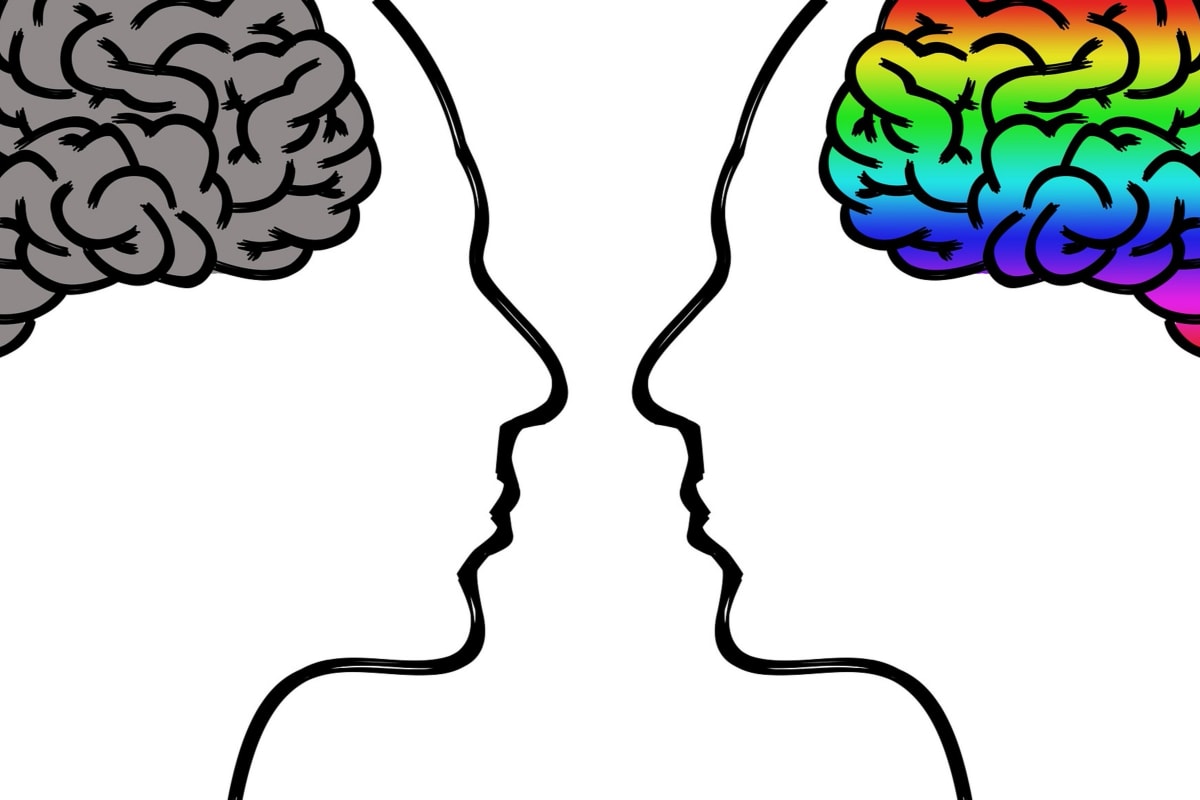If you read our previous article, you may have been surprised at how much of our happiness comes from our genes and brain wiring. But, as we talked about there, much of what makes us happy is also within our control. The things we choose to do and the quality of our relationships are especially important to a good quality of life. And with patience and work, we can even re-train our brains to boost our happiness setpoint. But how? And how can you figure out your ‘happiness setpoint’ anyway?
Your Normal Level of Happiness

When we say “happiness setpoint”, what we mean is the level of happiness that your brain naturally settles at when nothing’s really affecting your mood. For example, take the most normal day you can think of. Maybe you get up, go to work, come home in the evening, eat dinner, and hang out with your family. Maybe you’re wrangling three kids who are all under the age of seven. Maybe you go to classes, do some homework, possibly put in a couple hours at a part-time job. Wherever you’re at in life, pay attention to the next uneventful day or time when you don’t have a lot pulling on your emotions. Notice where on the happiness spectrum – from devastated to gleeful – you tend to settle when you have nothing that tells your brain to act otherwise (we hope it’s closer to the ‘gleeful’ end than the ‘devastated’ end!) That place where you tend to hover mood-wise is your happiness setpoint.
If you’re not quite satisfied with your ‘normal’ level of happiness, we have some good news: it’s changeable! And we’re going to talk about how to do that.
You Get What You Give

According to Psychology Today, one of the most sure-fire ways to reset your happiness setpoint is to give! According to research, showing compassion and behaving altruistically both boost our mood at least temporarily. And people with long-term giving goals report higher overall levels of long-term happiness than those who do not have those goals.
Why is that?
One of the reasons why giving boosts morale is because it makes you feel needed and helpful, which boosts self-esteem. But science has also shown us that self-esteem only boosts happiness up to a certain point – and giving almost always launches us way beyond it. That’s because giving and altruism increase our sense of purpose, making us feel that our life has meaning. And not just to us, but to our fellow people!
Ironically, when we’re feeling the most down in the dumps is also when we’re least likely to want to take energy to help someone else…even though it’s probably the thing that would help us out the most. But if we can summon the energy to do so, we will see amazing results even in the darkest of times. And giving doesn’t have to be hard! Something as small as a smile can not only feel like a triumph to you in some situations, but can also be a real help to someone else. You never know when you can give someone the boost they need to overcome a challenge, and you have lots of happiness to gain by trying!
Be Mindful of Your Thoughts

Every day, our brain automatically filters out thousands of signals that our senses send it that it doesn’t find important. To a lesser extent, it does the same thing with our thoughts. For thousands of years, our brains have been wired to focus on the negative – after all, that’s what kept our ancestors alive when they had to fight to survive in the wild. But in today’s world, that focus on the negative can sometimes backfire because we tend to spend more time on grumpy thoughts while positive thoughts are susceptible to being filtered out.
But just like we can train our brains to memorize sports plays, dance routines, information for classes, and pieces of music, we can also train it to automatically focus on happy things. When we pay attention to the thoughts we have and take an active role in deciding what stays and what goes, we suddenly have a lot more control over our happiness. Be mindful of your thoughts. It sounds like something a Jedi would say, and it will take time and effort to master, but the rewards will be wonderful.
Find The Root of The Problem

Everyone experiences stress in their lives, and many times we just tend to hunker down and “deal with it.” For short-term issues that are likely to resolve fairly quickly, this may not be a bad course of action. But for severe or long-term stress, you will need to do more than wait for it to blow over for your own mental safety.
When we have too much worry or anxiety, it literally sends our brains into ‘survival mode,’ meaning you’re more flighty and on edge, more prone to irritability, all of your physiological systems (digestion, blood pressure, immune system, etc.) are on overdrive, and – you guessed it – you become much more attuned to negative events. When this happens, it’s very important to take some time to deal with the stressor.
If it’s something like a big project for work or school, you can usually get it out of the way if you focus on tackling it head-on (while you’re doing this, don’t forget to let yourself take breaks so that you don’t burn yourself out). If it’s more along the lines of strain in a marriage, depression, anxiety, PTSD, addiction, or bereavement, it’s best if you get help. Talk with a loved one or trusted friend, and don’t be afraid to seek help from a professional counselor or therapist.
There are tons of ways to increase your happiness setpoint. Comment below to share some of the ones you have found that work for you!

